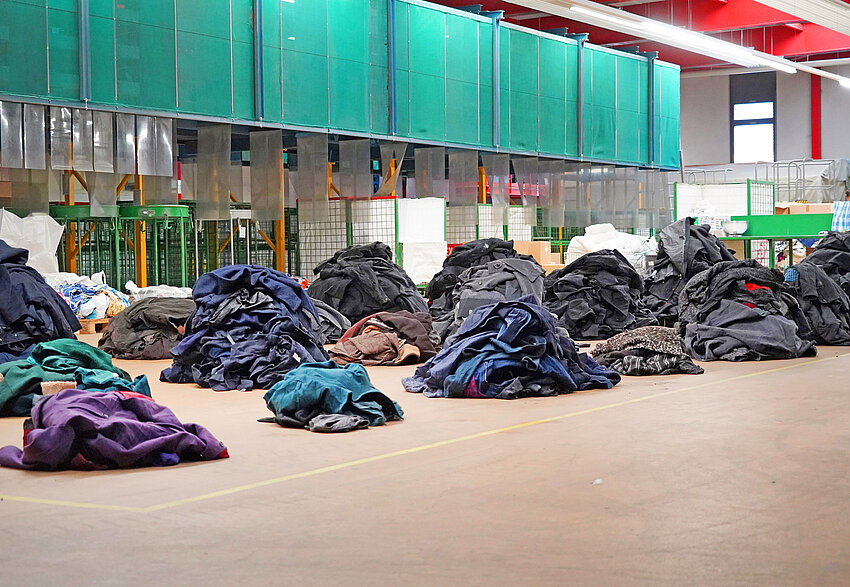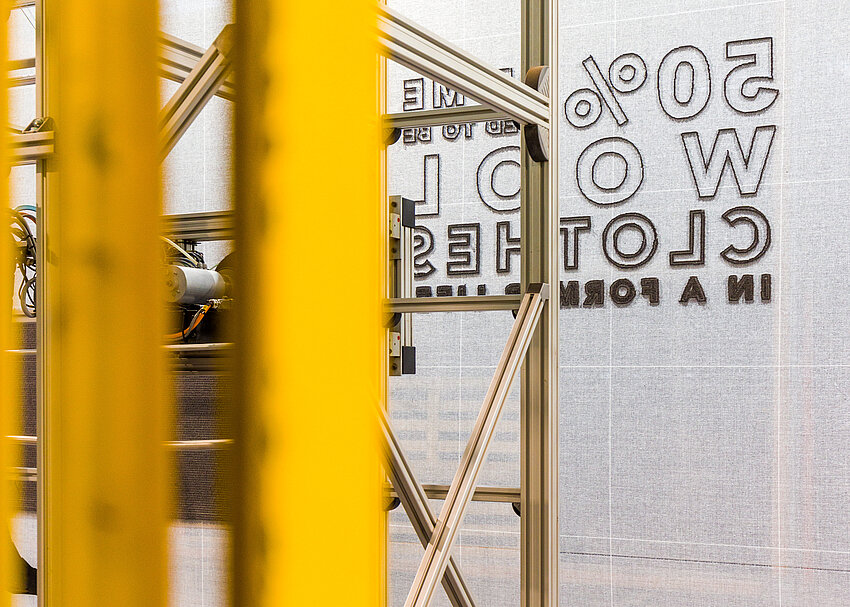
RUCKSTUHL x TEXCIRCLE
Textile Abfälle von heute werden zum Teppich der Zukunft.
The textile industry is confronted with an increasing volume of end-of-life textiles, the so-called 'post-consumerwaste', or PCW for short, which are returned by the end consumer after the use phase. This is the classic field of activity of textile recyclers (such as Texaid). In Switzerland, over 50,000 tons of used clothing are collected annually. In the EU, a full 6.8 million tons were generated in 2019. A steadily growing proportion of this is incinerated or processed into low-quality recycled products.
In addition, there are textiles from overproduction, take-back goods or liquidation goods that were previously thermally recycled or destroyed. For ecological and ethical reasons, this process is no longer a solution for the Swiss textile industry. This material represents a new market potential for textile recyclers.
In the project 'Texcircle' of the Lucerne University of Applied Sciences and Arts, supported by Innosuisse, concrete solutions for the multifactorial challenge of PCW use are developed in an exemplary Swiss cluster with several partners.
The aim is to close the textile cycle within the cluster. The project operates on the three levels of vision, process and product, whereby these levels are driven forward in an integrated manner and economic, technical, ecological and design aspects are taken into account. Together with the partners of the cluster, a vision is developed based on existing and developed criteria, stakeholder analyses and LCA results. Finally, high-quality and target group-oriented products will be developed.
External project partners involved: Coop Genossenschaft, NIKIN AG, Rieter Management AG, Ruckstuhl AG, Jacob Rohner AG, Texaid, Tiger Liz Textiles GmbH, workfashion.com










As a result of its participation in the 'Texcircle' project, Ruckstuhl presents the first prototype of the "PhenX" carpet, half of which is made of post-consumer waste wool.
The 'Texcircle' project, the recycled wool garments were stripped of linings, buttons and other non-recyclable components and then ozone-cleaned before being processed into a carpet yarn with the addition of 50% virgin material.
If you would like to stay informed about the project and/or don't want to miss the launch of the collection, please fill out the contact form.
